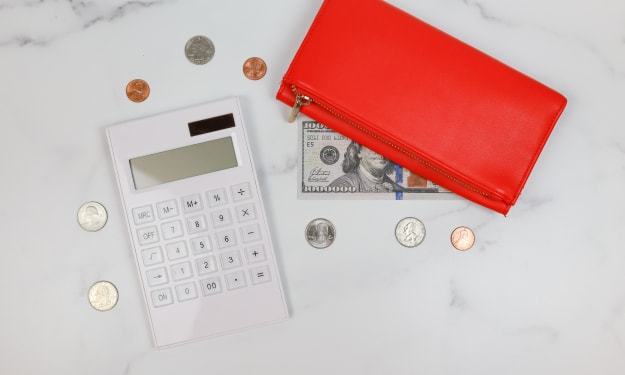Keys to Keeping Your Personal Finances Healthy
Building Financial Stability for a Peaceful Life

Managing personal finances is a fundamental skill that we all should have, but one that we often neglect. By not giving it the proper attention, we may fall into a situation of financial imbalance that can affect our quality of life. That's why it's essential to know certain keys to keep our personal finances healthy.
Control Your Expenses
The first step to maintaining healthy personal finances is to have control over your expenses. Create a budget that includes all fixed, variable, and sporadic expenses. By doing so, you can visualize how much money you have available each month and plan your expenses better. Tracking your spending will also help you identify areas where you can cut back and make adjustments to your lifestyle without sacrificing essential needs.
Moreover, consider adopting a cash-first approach to manage discretionary spending. Using cash instead of credit cards for non-essential purchases can help you stay within your budget and avoid accumulating unnecessary debt. Remember, even small expenses can add up over time and impact your financial well-being.
Save for the Future
Once you have control over your expenses, it's important to start saving for the future. Set savings goals and allocate a percentage of your income to them. Saving will allow you to handle unforeseen situations and help you achieve your long-term goals.
Creating an emergency fund is a crucial aspect of financial preparedness. Aim to save at least three to six months' worth of living expenses in a separate account. This fund will provide a safety net during times of unexpected financial challenges, such as medical emergencies or unexpected job loss.
Additionally, consider establishing separate savings accounts for specific goals, such as buying a home, going on a dream vacation, or funding your children's education. Having separate accounts for various goals can help you stay organized and prevent dipping into funds intended for other purposes.
Reduce Your Debts
Debts can be a significant obstacle to maintaining healthy personal finances. If you have pending debts, establish a plan to pay them off as soon as possible. It's always better to have smaller debts or no debts at all.
Start by prioritizing high-interest debts, such as credit card balances, and create a systematic debt repayment plan. Consider the debt avalanche method, where you pay off the debt with the highest interest rate first, or the debt snowball method, where you tackle the smallest debt first to gain momentum.
As you work towards debt reduction, avoid taking on new debts unnecessarily. Be cautious with credit card usage and consider paying for purchases with cash whenever possible. Reducing debt will not only free up your financial resources but also relieve the stress associated with financial obligations.
Invest Wisely
If you have surplus money, it's essential to invest it wisely. Look for investment options that fit your goals and risk profile. Consult with an expert if necessary.
Diversification is a fundamental principle of investing. Spread your investments across various asset classes, such as stocks, bonds, real estate, and commodities. This approach helps minimize risk and potential losses during market fluctuations.
Consider investing in retirement accounts, such as a 401(k) or an IRA, which offer tax advantages and long-term growth potential. Take advantage of employer-sponsored retirement plans that match your contributions, as this is essentially "free money" towards your future financial security.
Cultivate a long-term investment mindset. Avoid making impulsive decisions based on short-term market trends. Remember that successful investing is about staying disciplined, staying informed, and staying patient.
Take Care of Your Credit History
Your credit history is crucial to maintaining healthy personal finances. A good credit score can open doors to better financing opportunities, such as lower interest rates on loans and credit cards.
To maintain a positive credit history, make sure to pay your bills on time and avoid carrying high credit card balances. Regularly review your credit report and address any inaccuracies promptly. Responsible credit card usage, where you pay off the balance in full each month, can demonstrate financial discipline and positively impact your credit score.
If you encounter difficulties in making payments, contact your creditors to explore options such as debt consolidation or payment plans. Being proactive in managing your credit will help you build a solid financial foundation.
Seek Additional Income Sources
One way to maintain healthy personal finances is to look for additional income sources. You can do this through part-time jobs, online businesses, or any activity that allows you to generate extra income. Remember, the more income you have, the easier it will be to reach your financial goals.
Look for opportunities to monetize your skills and hobbies. Consider freelancing or consulting in your area of expertise or turning your passion into a small business venture. Online platforms provide an accessible avenue to market your services and products.
Moreover, explore ways to leverage passive income streams, such as investments in dividend-paying stocks, real estate rentals, or digital products. Passive income can provide a stable source of revenue without requiring constant effort.
Educate Yourself Financially
To make informed decisions about your finances, it's essential to acquire a solid financial education. Read books, attend seminars and courses, and stay informed about best practices for managing your personal finances. This will enable you to take better financial decisions and have a greater sense of control over your financial life.
Focus on developing financial literacy in areas such as budgeting, saving, investing, and retirement planning. Understand the basics of taxes, insurance, and estate planning. Being financially knowledgeable empowers you to navigate the complexities of the financial world confidently.
Take advantage of online resources and financial tools that offer insights into budgeting, expense tracking, and investment planning. There are numerous financial podcasts, blogs, and forums where experts share valuable tips and advice on managing money effectively.
In conclusion, maintaining healthy personal finances is fundamental for having a stable and peaceful financial life. Control your expenses, save for the future, reduce your debts, invest wisely, take care of your credit history, seek additional income sources, and acquire a solid financial education. With these keys, you can have a financially healthy and smooth life. By making sound financial decisions, you'll be better equipped to achieve your life's goals and aspirations. Remember, the path to financial well-being begins with learning, planning, and taking action.
About the Creator
Johan Jaramillo
Passionate about writing articles, stories, and tales. Each word is a blank canvas that breathes life into new worlds and emotions. Writing is my sanctuary, my way of expression, and sharing my passion with the world.
Enjoyed the story? Support the Creator.
Subscribe for free to receive all their stories in your feed. You could also pledge your support or give them a one-off tip, letting them know you appreciate their work.






Comments
There are no comments for this story
Be the first to respond and start the conversation.